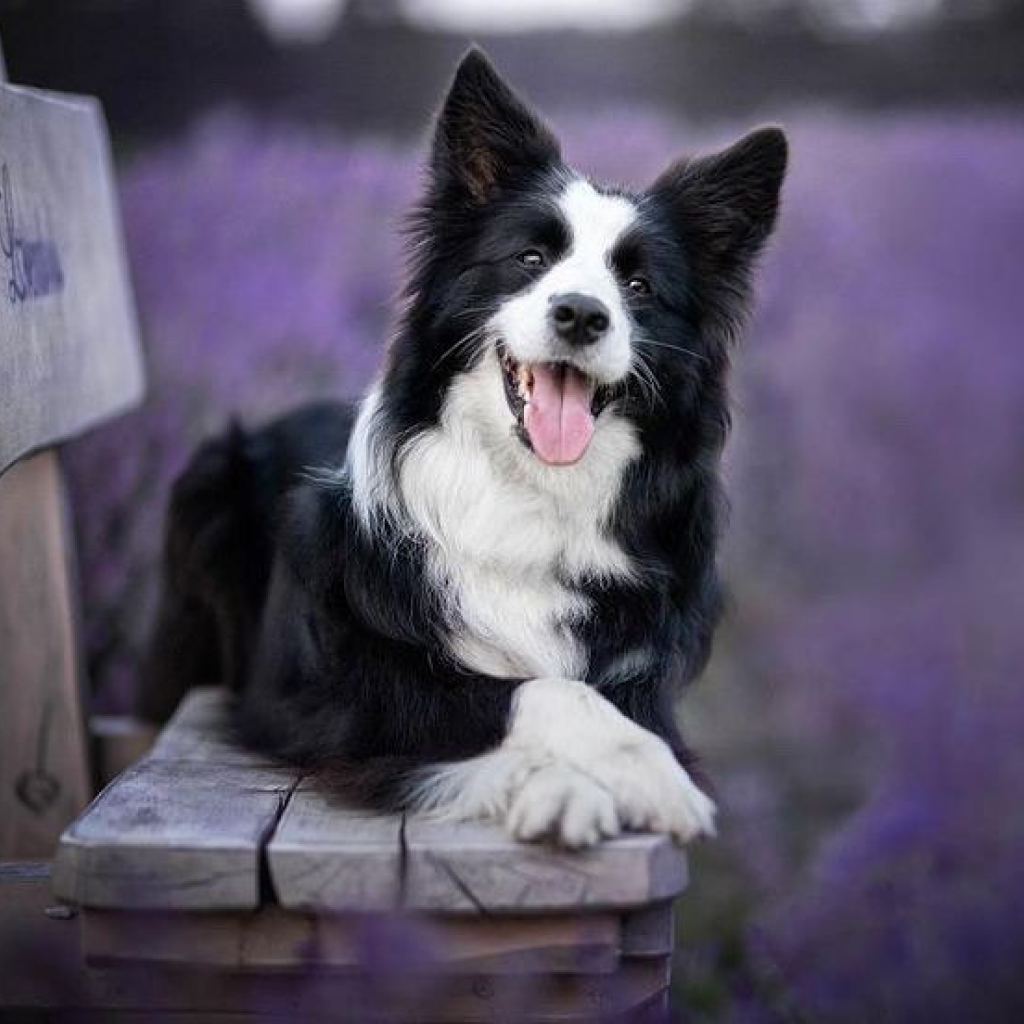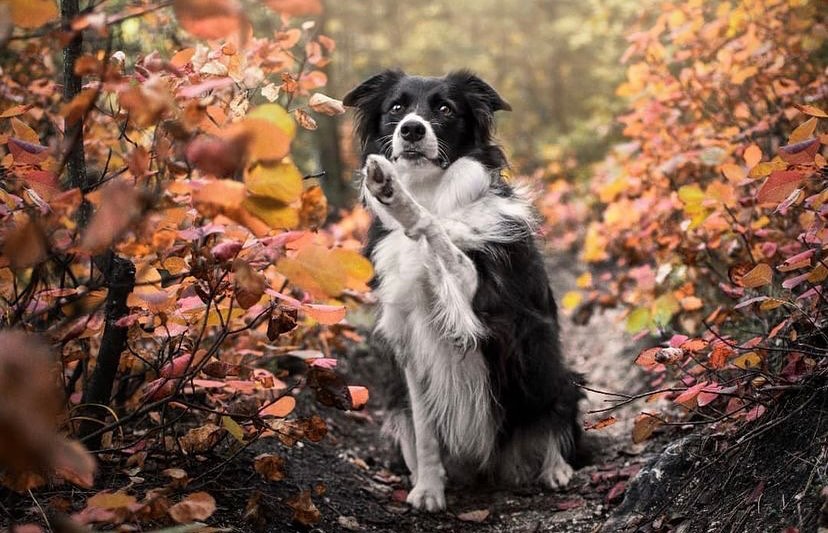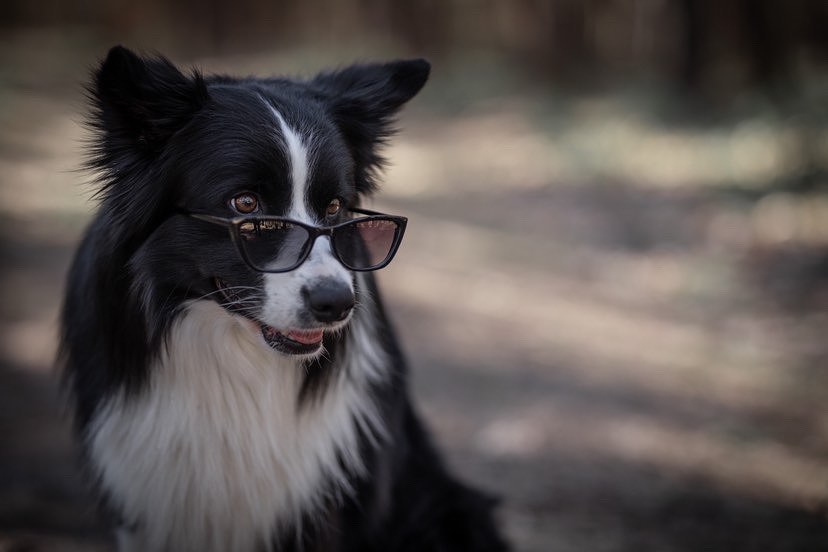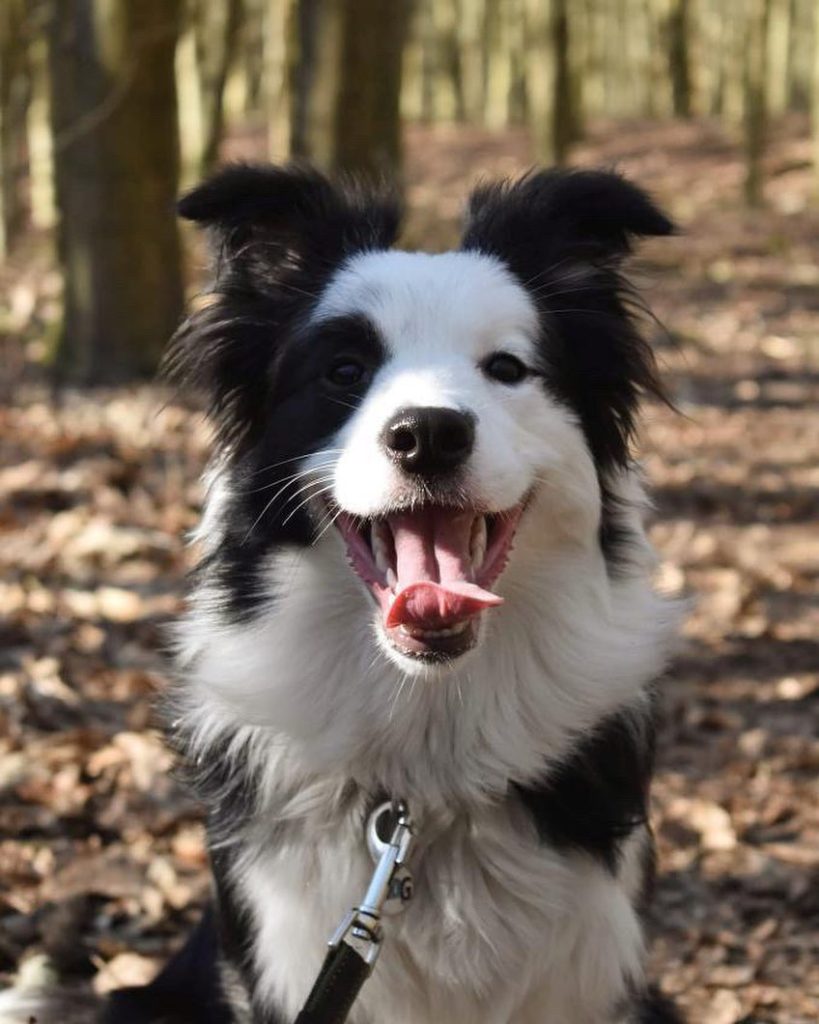Essential Guide to Border Collie Training
Training a Border Collie is both a challenging and rewarding experience. Known for their intelligence, energy, and agility, Border Collies are often considered one of the most trainable dog breeds. However, their sharp minds and active nature also mean that they require a unique approach to training.

When embarking on the journey of training a Border Collie, it’s essential to understand what makes these dogs unique. Originally bred for herding sheep, they possess an innate drive to work and a strong desire to please their owners. This combination makes them highly receptive to training but also means they require regular mental and physical stimulation to stay happy and healthy.
One of the first steps in training a Border Collie is to establish a strong bond of trust and understanding. This involves consistent communication and using positive reinforcement techniques. Treats, praises, and playtime are effective ways to reward and motivate your Border Collie during training sessions.
It’s also crucial to start training early. Puppies are more adaptable and can quickly learn basic commands such as ‘sit,’ ‘stay,’ ‘come,’ and ‘heel.’ However, training shouldn’t stop at these basics. Border Collies thrive on learning new tasks and tricks, which can include advanced obedience, agility courses, and even specific jobs like search and rescue or therapy work.
Understanding Your Border Collie’s Mindset
To effectively train a Border Collie, it’s crucial to comprehend their mindset. These dogs are not just smart; they’re problem solvers who thrive on mental stimulation. This breed’s intelligence is akin to that of a young child, which means they learn quickly, but also get bored easily if not adequately challenged. Border Collies possess a strong herding instinct, often displayed through chasing or circling, which is an essential factor to consider during training. They’re sensitive animals, responsive to their owner’s emotions and commands, making harsh discipline counterproductive. Instead, they respond best to positive reinforcement and gentle guidance. Understanding their need for purpose and engagement is key. By acknowledging these aspects of their mindset, training can be tailored to their specific needs, ensuring a more effective and harmonious learning process.
Setting Up for Successful Training
Creating the right environment and having a structured approach is crucial for successful Border Collie training. Start by designating a specific area for training sessions. This space should be free from distractions, allowing your dog to focus solely on you and the training tasks. Consistency in this environment helps the dog associate the area with learning and obedience. Additionally, equip yourself with the right tools – a comfortable collar or harness, a suitable leash, and a variety of treats for positive reinforcement are essential.
The second key aspect is establishing a routine. Border Collies thrive on predictability and structure. Decide on a training schedule and stick to it, as this consistency helps reinforce learning and behavior. Short, frequent training sessions are more effective than longer, sporadic ones, especially for young puppies with shorter attention spans. Remember, patience is vital. Every dog learns at their own pace, and it’s important to celebrate small milestones. Regular, consistent training, combined with patience and understanding of your Border Collie’s unique personality, lays the foundation for a rewarding training experience.
Proactive Problem Prevention Techniques
Preventative measures are key in training Border Collies, as they help in avoiding common behavioral issues before they become ingrained habits. The first step is early socialization. Exposing your puppy to various people, environments, sounds, and experiences is crucial. This broad exposure helps them become well-adjusted adults, reducing anxieties and fears that can lead to problematic behaviors. Secondly, setting clear boundaries and rules from the start is essential. Consistency in enforcing these rules helps your Border Collie understand what is expected of them, providing a sense of security and structure.

In addition to these foundational steps, here are some specific proactive techniques to incorporate:
- Regular Exercise: Border Collies are high-energy dogs. Ensuring they get plenty of physical activity prevents boredom and related destructive behaviors.
- Mental Stimulation: Use puzzle toys and training games to keep their mind engaged.
- Chew Toys: Provide appropriate chew toys to deter them from chewing on unwanted items.
- Positive Reinforcement: Reward good behavior immediately to reinforce desired actions.
- Ignoring Unwanted Behaviors: Instead of scolding, ignore unwanted behaviors like jumping for attention.
- Leash Training: Early leash training prevents future issues during walks.
- Crate Training: This can be a safe space for them and helps in managing separation anxiety.
By implementing these techniques, you can proactively manage potential issues, making the training process smoother and more enjoyable for both you and your Border Collie.
Training for Alone Time
Training your Border Collie to be comfortable with alone time is essential for their well-being and your peace of mind. Start with short intervals of separation and gradually increase the duration. During these periods, provide them with activities like puzzle feeders or safe chew toys to keep them occupied. This approach helps them associate alone time with positive experiences. It’s important to avoid making a big fuss when leaving or returning home, as this can increase anxiety and excitement about your absence and presence.
Additionally, crate training can be a beneficial tool in this process. Introduce your Border Collie to the crate in a positive way, making it a comfortable retreat with their favorite blanket or toy. The crate should never be used as a punishment but as a safe and secure space. Consistency in this training is key. Over time, your Border Collie will learn that being alone is a normal and safe part of their routine, reducing the risk of separation anxiety and related issues. This training not only provides them with a sense of security but also ensures they remain calm and content when you’re not around.
Importance of Mental Stimulation
Mental stimulation is as important as physical exercise for Border Collies. These intelligent dogs need mental challenges to stay content and prevent behavioral issues. Engaging their brain helps in harnessing their natural abilities and prevents boredom, which can lead to destructive behaviors. Here are key ways to provide mental stimulation:
- Interactive Toys: Puzzle toys that dispense treats can keep them engaged for hours.
- Training Sessions: Regular training sessions utilizing positive reinforcement challenge them mentally.
- New Tricks: Teaching new tricks and commands keeps their mind active.
- Hide and Seek: Playing games like hide and seek with toys or treats stimulates their problem-solving skills.
- Agility Training: Agility courses, which can be set up in your backyard, provide both physical and mental exercise.
By incorporating these activities into your Border Collie’s routine, you’ll not only keep them mentally stimulated but also strengthen your bond with them.
Starting Border Collie Training Today
To get started with training your Border Collie, it’s helpful to have a simple, structured plan. Here’s a basic table to guide you through the initial steps:
| Week | Focus Area | Activities |
| 1 | Introduction to Training | – Establish a regular feeding schedule- Introduce basic commands like ‘sit’ and ‘stay’ – Begin house training |
| 2 | Socialization and Basic Commands | – Introduce to different people and environments – Continue with basic commands – Start short, supervised separation periods |
| 3 | Reinforcement and Expansion | – Reinforce learned commands- Begin leash training- Introduce new simple tricks |
| 4 | Consistency and Routine | – Establish a consistent daily routine- Continue to practice and reinforce commands- Increase duration of alone time practice |
This table is a starting point. Remember, each Border Collie is unique, and you may need to adjust the pace based on your dog’s specific needs and progress.

Comprehensive Puppy Training Methods
When training a Border Collie puppy, it’s important to use a variety of methods to address their physical and mental development. Here’s a concise list of effective training methods:
- Positive Reinforcement: Always reward good behavior with treats, praise, or playtime. This encourages them to repeat those behaviors.
- Clicker Training: This method uses a clicker to mark the exact moment a desired behavior is performed, followed by a reward. It’s highly effective for teaching new commands and tricks.
- Crate Training: Useful for housebreaking and providing a safe space. Ensure the crate is a positive environment, never used for punishment.
- Socialization: Introduce your puppy to various environments, animals, and people to build confidence and prevent fearfulness.
- Consistent Routine: Establish a daily routine for feeding, toileting, and training to create a structured environment.
Biting Prevention and Handling
Biting is a natural behavior for puppies, including Border Collies, often stemming from curiosity or teething discomfort. It’s important to address this behavior early. When your puppy bites, respond with a firm “No” and replace your hand or clothing with a chew toy. This teaches them what is acceptable to bite. Consistently redirecting to appropriate chew toys and praising them when they chew the right items helps reinforce good behavior. Socialization with other dogs also plays a key role, as it helps puppies learn bite inhibition through interaction with their peers.
Ideal Age for Puppy Training Classes
The right age to enroll a Border Collie puppy in training classes can vary, but a general guideline can be helpful. Here’s a simple table outlining the ideal age range for different types of training classes:
| Age Range | Type of Training Class | Focus |
| 8-12 weeks | Puppy Socialization Classes | Socializing with other puppies, introduction to various stimuli |
| 12-16 weeks | Basic Obedience Classes | Basic commands, leash training, simple tricks |
| 4-6 months | Intermediate Obedience Classes | Reinforcing basic commands, introduction to more complex tasks |
| 6 months+ | Advanced Training Classes | Advanced obedience, specific skills like agility or herding |
Preparing for Border Collie Puppy Training

Before you begin training your Border Collie puppy, proper preparation is key. This preparation ensures a smooth and effective training process. Here’s a list of essential steps:
- Gather Training Supplies: Have treats, a clicker, a leash, and toys ready. Choose supplies suited for a puppy’s size and learning stage.
- Puppy-Proof Your Home: Ensure your home is safe for an inquisitive puppy by removing hazards and securing potentially dangerous items.
- Establish a Routine: Set up a consistent schedule for feeding, potty breaks, playtime, and training sessions.
- Choose a Quiet Training Space: Select a calm, distraction-free area in your home for focused training sessions.
- Plan Training Goals: Decide on the initial commands and behaviors you want to teach, starting with simple ones like ‘sit’ and ‘stay’.
By being well-prepared, you can create a positive and conducive learning environment for your Border Collie puppy.
Appropriate Age to Begin Training
The ideal age to start training a Collie is as early as 8 weeks old. At this young age, puppies are highly receptive and capable of learning basic commands like ‘sit,’ ‘stay,’ and ‘come.’ Early training establishes a foundation for good behavior and helps in socialization. However, it’s important to keep sessions short, fun, and positive, as puppies have limited attention spans. Consistency and patience are key, and as the puppy grows, you can gradually introduce more complex commands and training exercises.
Essentials To Train Your Border Collie
Effective training of a Collie requires some essential tools and practices. Here’s a list to ensure you’re well-prepared:
- Quality Leash and Collar: Essential for safe and controlled outdoor training sessions.
- Clicker for Clicker Training: A valuable tool for precise behavior reinforcement.
- Training Treats: Small, low-calorie treats are great for rewarding positive behavior.
- Chew Toys and Puzzle Games: Keep them mentally stimulated and engaged.
- Training Books or Videos: Helpful for understanding training techniques and dog psychology.
- Patience and Consistency: Perhaps the most crucial elements in training any dog, especially a breed as intelligent and energetic as the Border Collie.
With these essentials, you can create a positive and effective training environment, fostering a strong bond and mutual understanding between you and your Collie.
Customized Training Approach for Border Collies
Border Collies require a tailored training approach due to their unique characteristics and intelligence. Breaking down the training into weekly goals can be particularly effective.
Week 1 – Fundamentals and Socialization
Focus on basic commands like ‘sit,’ ‘stay,’ and ‘come.’ Begin socializing your puppy with different people, pets, and environments to promote well-adjusted behavior.
Week 2 – Basic Commands and Behavior
Continue reinforcing basic commands. Introduce leash training and start housebreaking routines. Consistent reinforcement and gentle correction are key.
Week 3 – Advanced Skills Development
Begin teaching more challenging commands or tricks. This could include ‘roll over’ or ‘play dead.’ It’s also a good time to start introducing your Collie to different types of interactive toys.
Week 4 – Refining Techniques
Focus on perfecting previously learned commands and behaviors. Start extending training sessions slightly and introduce more complex variations of the basic commands.
Week 5 – Consistency and Reinforcement
Emphasize consistency in all commands and routines. Begin working on training in different environments to generalize the learned behaviors.
Week 6 – Expanding Training Scope
Introduce new training challenges, such as agility exercises or more advanced obedience training. Keep sessions engaging and varied to maintain interest.
Week 7 – Preparing for Advanced Training
Evaluate the progress and start preparing for more advanced training concepts. This could include off-leash training or specialized skills like herding techniques, depending on your Border Collie’s interests and aptitudes.
Week 8 – Finalizing Basic Training
Review all the commands and behaviors learned over the past weeks. Ensure your Border Collie is responding well in various settings and situations. Start planning for ongoing training and development.
This weekly breakdown offers a structured approach, catering to the learning pace and abilities of your Border Collie. Remember, flexibility is important as each dog progresses at their own rate.
What Comes After Basic Training?

After mastering basic training, the journey with your Border Collie continues into more advanced and specialized areas. This can include agility training, advanced obedience, herding skills, or even dog sports like flyball and disc competitions. It’s also a great time to strengthen your bond through interactive play and challenging puzzle games. Continuing education is vital for a Border Collie’s mental and physical well-being, as it keeps them engaged and prevents boredom. Tailoring activities to your dog’s interests and strengths will ensure ongoing development and a happy, well-rounded canine companion.
Exploring Advanced Training and Activities
Once your Border Collie has mastered basic training, exploring advanced activities can provide further mental stimulation and physical exercise. Here are some options to consider:
- Agility Training: Navigating obstacle courses enhances physical fitness and obedience.
- Herding Training: Taps into their natural instincts, perfect for farm environments.
- Flyball: A team sport that involves racing over hurdles to fetch a ball.
- Advanced Obedience: Includes complex commands and tasks.
- Disc Dog: Engaging in frisbee catching games, excellent for exercise and coordination.
- Scent Work: Training your dog in scent detection for fun or competition.
Engaging in these activities not only challenges your Border Collie but also strengthens your bond with them.
Leveraging Training Apps for Continuous Learning
For effective and continuous Border Collie training, here are some concise recommendations for training apps:
- Dogo: Offers personalized training with over 100 exercises, a built-in clicker, and feedback from trainers.
- Puppr: Features over 80 lessons by a celebrity trainer, with a user-friendly interface and a built-in clicker.
- GoodPup: Provides one-on-one video chat training with certified trainers and customized training plans.
- EveryDoggy: Covers basics, obedience, socialization skills, and more with over 70 training videos.
- Pupford: Includes a free 30-day course by a renowned dog expert, covering various training aspects.
Journey to a Well-Trained Border Collie
Training a Border Collie is a journey that requires dedication, patience, and understanding. It’s about developing a deep bond with your dog through consistent training, mental and physical stimulation, and positive reinforcement. Remember, every Border Collie is unique, so tailor your training to suit their individual personality and needs. Celebrate each milestone, whether big or small, and enjoy the process of nurturing a well-behaved, happy, and intelligent companion. This journey not only trains your dog but also strengthens the relationship between you and your pet.
Getting Started on the Right Paw
Beginning your Border Collie’s training journey on the right paw involves setting a foundation of trust and understanding. Start with basic socialization and simple commands to build confidence and establish a communication channel. Ensure a consistent routine and a positive, patient approach. Equipping yourself with the right training tools, like a good leash, clicker, and treats, will facilitate this process. Remember, the initial steps you take in training are crucial in shaping your Border Collie’s behavior and attitude towards learning.
Engaging with Professional Training Coaches
Working with professional training coaches can significantly enhance your Border Collie’s training. These experts bring a wealth of experience and can offer personalized guidance tailored to your dog’s specific needs and temperament. They can also address complex behavioral issues and provide advanced training techniques. Engaging a professional trainer can be particularly beneficial for first-time Border Collie owners, ensuring that both you and your dog are on the right track towards a successful and fulfilling training experience.
